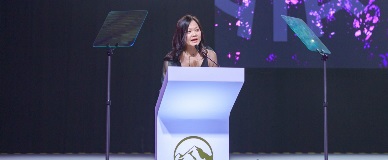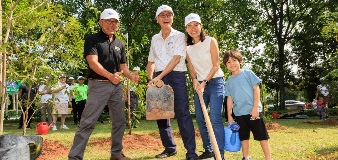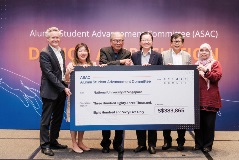An NUS Giving Experience Leadership Series uncovers ways of mitigating food sustainability issues.
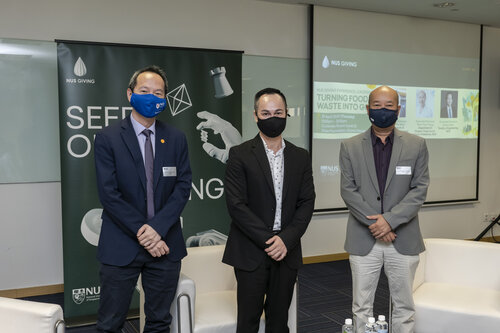
The sustainability of Singapore’s food waste management is a national priority on our journey to become a zero waste nation. However, the National Environment Agency still reported high levels of food waste and a slow uptake on recycling in 2019 – S$2.54 billion worth of food was lost every year from farm to market; and only 18% was recycled.
“The sustainability challenge requires a team that spans different disciplines to come together to address the different aspects, be it food, environmental protection, and waste, which is our focus today. And technology, of course, is the key enabler,”
says Professor Aaron Thean, Dean of the National University of Singapore (NUS) Faculty of Engineering, in his opening speech for the NUS Giving Experience Leadership Series titled Turning Food Waste into Gold.
The winner of six competitive
global innovation awards and owner of several patents, Associate Professor Duong Hai Minh is the innovator leading the way in turning waste into treasure, at the NUS Department of Mechanical Engineering.
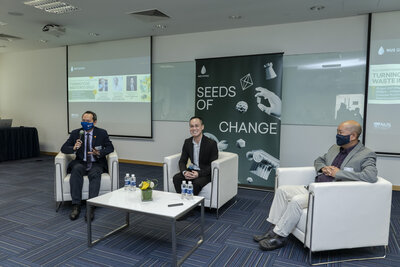
“For every kilogram of pineapple harvested, three kilograms of pineapple leaf waste is generated. The waste is either burnt, used in a landfill, or recycled into low-value materials such as animal feed or fertiliser. These are costly but ineffective methods that cannot be commercialised,” Associate Professor Duong revealed.
With his research on creating aerogels from agricultural waste, he hopes to one day convert pineapple leaf into the main product, leaving pineapple as the by-product. Other agricultural by-product waste that can be developed include sugarcane bagasse, used coffee and soya beans.
“Not only are the eco-aerogels we produce environmentally friendly, non-toxic, biodegradable, and can be reused and recycled, they can also be used in multiple important commercial applications such as heat and sound insulators, pollutant removers,
medical devices, personal care products, and even in tools for cleaning up oil spills,” shared Associate Professor Duong.
Metal is another waste that Associate Professor Duong and team optimised via a new eco-friendly technique -
to convert aluminium and magnesium waste into high-value, multifunctional aerogels, which can be used in producing light-weight construction materials. Aluminium aerogels can also be used as microcarriers for cell cultivation. This exciting development
could open doors to wider use of non-conventional applications such as drug testing and cosmetics, vaccine development and tissue engineering.
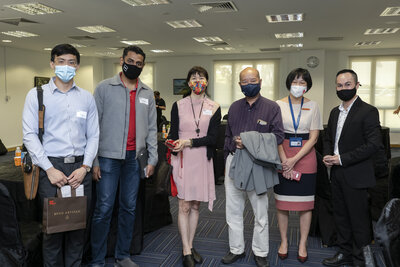
The umbilical cord, technically a medical waste, is actually a “gift from Mother Nature” according to Associate Professor Phan Toan Thang, founding director and CSO of the CellResearch Corporation Group of Companies. His recent research work is the innovative discovery of a novel source of stem cells from the umbilical cord lining membrane with translational potential for regenerative medicine, tissue engineering and cell-based therapies.
Cross collaborations with Associate Professor Duong on various applications include the growth and proliferation of stem cells on microcarriers made from pineapple fibres.
“Aerogels that can absorb human fats can also possibly be developed into oral capsules, so people can enjoy tasty yet fatty food without some of the accompanying health issues,” Associate Professor Phan added.
The talks were followed by a Q&A with the speakers, moderated by Associate Professor Daniel Chua from NUS Engineering.
For further information on the NUS Giving Experience Leadership Series, contact the Events team at dvoevents@nus.edu.sg.



